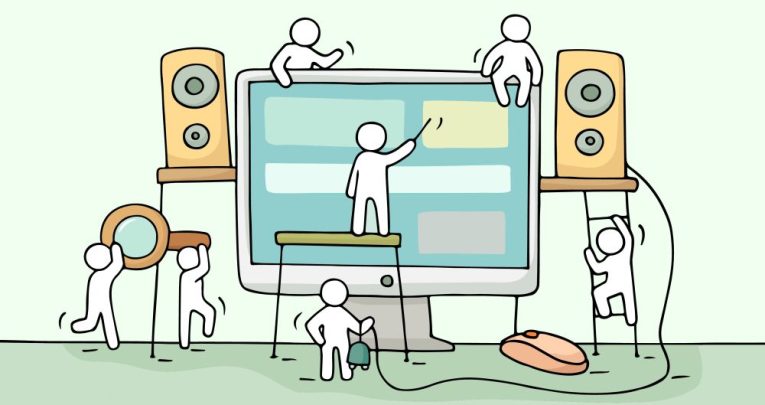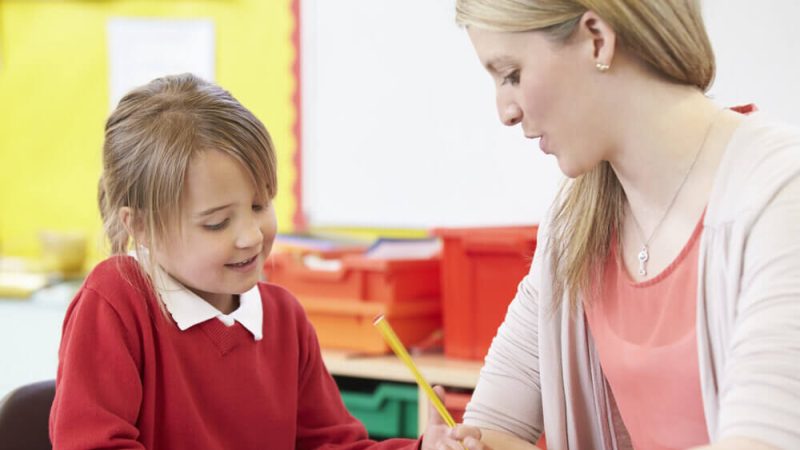“Let’s have a better post-COVID conversation about edtech” – remote teaching versus classroom lessons

Alka Sehgal Cuthbert calls for a return to educational basics, and a more nuanced critique of optimistic dreams concerning our gleaming, edtech-powered future…

Many both inside and outside the teaching profession have long harboured high hopes for the potential of educational technology.
The closure of educational institutions to the majority of students during lockdown has further fuelled the idea that some form of online education – perhaps one ‘blended’ with an hour or two of face-to-face contact time – is an acceptable proxy for, or perhaps even an improvement on, traditional classroom settings.
Back in 2008, the linguist and semiotician Gunter Kress suggested – in a somewhat resigned tone – that education should embrace the idea of multimodality in the face of ‘The technological forces of late capitalism.’. Contrasted to that has been the decidedly more upbeat view of Ken Robinson, who, in echoes of Sugata Mitra’s idea of ‘hole in the wall’ education for India’s rural poor, embraces the idea of computers being able to provide new learning opportunities for many more people than would be possible via traditional means, especially in less developed countries. Robinson features in a promotional video produced by Microsoft circa 2010 entitled, ‘Technology in Education Around the World’, which shows how technology has made it possible for pupils in Lesotho, southern Africa to find out what life is like elsewhere, and enabled a severely disabled student to attend university. These are indeed wonderful examples of the educational opportunities technology can deliver, though as Robinson observes in the video, ultimately ‘It is the people in the schools who do the work.”
Showing that you care
He’s not wrong. In education, those who do the actual hard work of education, as opposed to the host of ancillary work that enables and supports it, are the teachers and pupils. Technology can certainly bring useful things to education, but there’s nothing intrinsically educational about technology itself per se.
As a young person in the aforementioned video points out, the same technology can be used to play games, pursue hobbies and conduct everyday communications, as well as for educational purposes. It follows, then, that for any technology to be of actual use in the classroom, the ‘education’ side of the equation has to be firmly in place first, so that the technology’s use is distinctively educational.
And here’s the rub – few people among the ranks of politicians, policy makers and academics (and sadly, many teachers) possess a strong enough conception of what education is and what it needs to flourish. Using Skype as a teacher or lecturer to ensure students know you care is, as professor of higher education Steven Jones recently wrote, simply that – showing that you care.
Within the context of a national lockdown and a dramatic reduction in social contact, that may have been understandable. But education isn’t reducible to simply caring; not when lots of people are involved in caring for the younger generation. Many parents have come to know only too well the difference between ‘caring’ and ‘educating’ first-hand, as they’ve tried to balance their own professional and domestic work with the need to ensure their children continue to receive some form of education.
Positive discoveries
As a teacher at a supplementary school for primary-aged children, I’ve enjoyed the advantages of small class sizes, the freedom to teach my own curriculum and a very supportive management team, who ensured we were reasonably up to speed with the technology needed to teach online lessons throughout most of last term.
Not all teachers and pupils will have had a similarly positive time of things, but from my own experience and anecdotally, online teaching has had two unexpected advantages. Firstly, some teachers have found it easier to plan lessons away from the intensity of being physically present in the school environment. Secondly, it’s often the case that lesson material has to be adapted and frequently streamlined for online delivery – a process that some teachers have found helpful because of how it’s forced them to re-engage with the material in a more conscious and constructive way.
Another unexpected but welcome development has been that some pupils, for whom classrooms are places filled with distractions or anxieties, have been able to focus and participate more effectively during online lessons. As schools return to ‘real-world’ teaching, staff should consider whether some of these positive discoveries might be worth incorporating into their standard practice.
A triangular relationship
Nonetheless, I’d venture that the collective experience of online teaching has been less positive overall. I’ve watched as the digital faces spread across my screen have gone from being perky, curious and relatively upright, to slumped and listless while struggling to remember anything.
The frequent interruptions as pupils’ faces vanish from lessons through no fault of their own, thanks to unstable internet connections, only to reappear sideways while they struggle with their device’s orientation, are both wasteful and stressful. Then there’s occasional miscreant who takes advantage of you forgetting to disable the annotation function on screenshare, or who opens a background that makes their head appear to float in space.
The flexibility of time and place that technology affords is certainly nice, but again, not something that’s intrinsically educational. At the heart of education is a triangular relationship between teacher, pupils and knowledge, both in its disciplinary form as academic knowledge, and in its recontextualisation as school subjects. Education is the product of a person-to-persons relationship, where attention is focused on the subject knowledge of the lesson. It’s also about learning to place and conduct yourself, literally and metaphorically, in a bigger context.
Even the best-equipped bedroom or study can’t provide the same thing. One particularly unfortunate effect of online teaching is that it can encourage a one-to-one ‘personal service’ model of education, in which the collective aspects of teaching and learning are diminished.
Tacit approval
The processes of engaging with knowledge, thinking, questioning and being encouraged to take intellectual risks are all best encouraged through collective, as well as individual work. There’s an obvious pleasure that pupils get from achieving full marks in online test material, but it’s qualitatively different to the deeper pleasure and sense of achievement that’s earned by working hard at a particular problem.
Teachers can furthermore praise or criticise online, but there’s no room for a teacher and pupil to catch each other’s eye in a tacit acknowledgement of approval or thanks. It’s much harder to read informal body language, in the way teachers do constantly, when all you can see are pupils’ heads. And those stern, authoritative looks that can instantly silence a class are difficult to pull off digitally.
The iterative, pedagogic interactions that play out across that triangular education relationship can’t be fully replicated through computers, however sophisticated the hardware and software might be.
A very human practice
Central to good teaching is an agility that enables teachers to move between conceptual and imaginative modes of thought and knowledge, while simultaneously attending to pupils’ tacit indications and explicit responses. Teaching is a distinctly human practice and education a very human good. By their nature, neither are all that technological at all, though technology can play a constructive secondary role in delivering both, if implemented well.
Yet the fact remains that a real-world classroom contains a collective entity confronted with all manner of potentialities that aren’t replicable in the virtual equivalent. While explaining the meaning of the word ‘receding’, for instance, the noise of an overhead aeroplane can be used as a sensory demonstration of the concept. The concrete contingencies of a physical classroom present teachers with a wider and richer repertoire of pedagogic potential. The presence of students’ peers can encourage acts of disruption, yes, but also solidarity.
Unfortunately, the depredations caused by decades of chasing data, imposing endless ‘quick-fixes’ and setting instrumental goals won’t be undone by flipped classrooms, online tutorials or any other technological solution, counter to what Jones seems to hope.
But what if we devised an education system and approach to teacher education that values intellectual work in all its forms, from the abstraction of maths to the aesthetics of art? That might just have a chance.
Think bigger
It would be a tragedy if, once schools are fully re-opened, pupils face a curriculum dominated by agenda-driven wellbeing, social justice, and intense, exam-based catch-up classes. Instead, schools should be encouraged to reflect on their lockdown experiences.
There are more important and constructive things the government can be doing than funding a hastily compiled national bank of resources. Some teachers will have likely found it helpful, but can’t we take the opportunity to think bigger? Why not change the structure of the school week? We could have three days in school, one day where teachers plan their work and another day where they assess and mark work.
One of those non-teaching days could include online sessions for those pupils who would benefit from them. Spending fewer days in class may result in equal, or even better outcomes if what takes place during that time is truly educational. We could even see teacher retention levels potentially improve, and find ourselves with a better educated younger generation in a few years’ time.
Personal flights of fancy these may be, but I still think they make for a more interesting post-COVID-19 conversation about education than fixating on the negativity inherent in talk of damage limitation exercises and instances of exam failure.
Alka Sehgal Cuthbert is a teacher, independent academic and writer, and co-editor of What Should Schools Teach? – Disciplines, Subjects and the Pursuit of Truth 2nd Ed., due to be published in the New Year by UCL IOE Press; follow her at @ASCphiled








